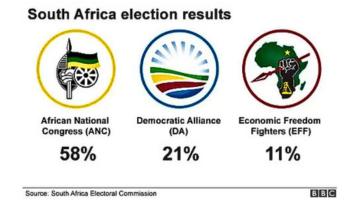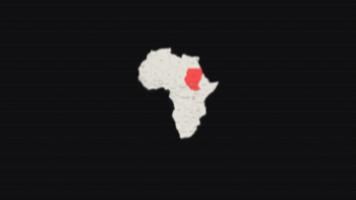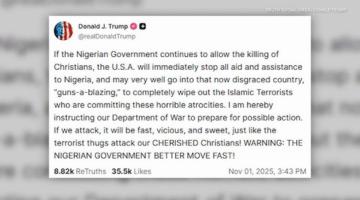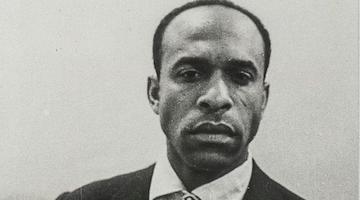White South Africans rallying in support of President Trump outside the U.S. Embassy in Pretoria, South Africa, last month. Photo; Joao Silva/The New York Times
The Trump administration’s decision to fast-track asylum for white South Africans—claiming "persecution"—is a political stunt, ignoring that they remain among the wealthiest globally, still controlling most of the country’s land and resources decades after apartheid allegedly ended.
Not much is publicly known about the nearly 60 white South Africans who arrived May 12, 2025, at Dulles National Airport in suburban Washington DC, fleeing what the Trump administration describes as racial discrimination and political violence from the country’s Black majority. But in classifying South Africa’s privileged white minority as “refugees” and fast-tracking their path to US citizenship, the White House, in typical fashion, overlooks a salient point which is that statistically speaking, South Africa is arguably the most comfortable place in the world for white settlers to live while the US is among the least.
White Americans are, in fact, nearly eight times more likely to live in poverty than are white South Africans. By comparison, white Canadians are six times more likely than white South Africans to live in poverty.
Most of the white South African immigrants who arrived in the US Monday are descended from the Dutch émigrés and French Huguenots known as Afrikaners who left their own countries beginning in 1652 and formalized white-minority rule 296 years later. Led by Nelson Mandela’s political party, the African National Congress, South Africans of all races went to the polls for the first time in 1994 to abolish the political system known as apartheid but vast racial economic disparities remain.
Representing only 7 percent of a population of 63 million, white South Africans continue to own nearly three-quarters of all arable farmland in the country. To remedy this imbalance, South African President Cyril Ramaphosa signed a land redistribution act into law in January, allowing the government to seize unused farmland without compensation.
Said Trump at a Monday news conference:
“It's a genocide that's taking place that you people don't want to write about, but it's a terrible thing that's taking place. And farmers are being killed. They happen to be white, but whether they're white or Black makes no difference to me, but white farmers are being brutally killed, and their land is being confiscated in South Africa.
Government officials note that the land reform act only applies to unused farmland, and no property has been seized as of yet. And while South Africa reported nearly 13,000 homicides in 2023–befitting a post-apartheid state that continues to be home to the world’s most unequal distribution of wealth–the number of white farmers slain that year did not reach double digits.
Ronald Lamola, the country’s international relations and cooperation minister, told reporters Monday:
“They can’t provide any proof of any persecution because there’s not any. There is not any form of persecution to White South Africans.”
That would appear to be borne out by the paucity of white South African farmers who applied for asylum in the US under the Trump administration’s resettlement plan. Maritz Grobler, an Afrikaner who owns 1,000 acres where he farms corn, beans, cattle and sunflowers, told the Wall Street Journal:
“This is my country. But it’s good to know that [Trump] will back us…if shit happens.”
On social media platforms this week, Americans have decried Trump’s resettlement plan as a gesture of racial solidarity between white settlers. Wrote one African American woman:
“Israel is murdering Palestinians by the day, the Congolese are in the crosshairs of a real shooting war, there are open-air slave markets in Libya, and a right-wing nutjob is in charge in El Salvador. . .and Trump denies entry into the country for everyone except the very people who were the architects of apartheid.”
Similar to the politics of white aggrievement promoted by Trump, many white South Africans have complained of reverse discrimination by Blacks, who account for more than 80 percent of the population; sixty-four percent live in poverty, a number that is virtually identical to the percentage of Blacks living in poverty during the apartheid era. And while it is not uncommon to hear whites threatening to move to the UK or Australia–packing for Perth as they colloquially dubbed it–few have relocated.
That is rooted in a general understanding of how good they have it and their strong attachment to the land. In countries like Congo, Angola, Ghana, and Rwanda, colonialists arrived with no intent other than to plunder Africa’s natural resources and exploit its labor before heading back home with their bounty. In countries like Zimbabwe, Kenya, and South Africa, however, the pattern was quite different, due in large part to the émigrés’ state of mind when they disembarked. Afrikaners came to stay, and on the backs of Black labor and dispossession built a country that their children and grandchildren could live in comfortably for generations to come, similar to settlers in the US.
Consequently, the Afrikaners’ narrative is virtually indistinguishable from the folkloric tales of the pilgrims in which brave, resourceful pioneers struck out on their own and conquered hostile lands and savage people. Beginning in the 1830s, Afrikaners embarked on a series of mass migrations inland from South Africa’s Western Cape region, where the Atlantic Ocean intersects with the Indian Ocean, in search of fertile farmland. The Voortrekkers—literally those who move ahead to new lands to the north—encountered violent resistance from the Zulus, the indigenous warrior tribe that populates the mountainous coastal region of KwaZulu-Natal.
In 1837 Pieter Retief, a wealthy Afrikaner farmer, led his delegation of covered wagons over the Drakensberg mountains into KwaZulu-Natal, where he entered into negotiations with Dingane, a chief who became king of the Zulus after he murdered his brother Shaka Zulu in 1828. In the popular Afrikaans version of the meeting, the two men signed a deed (historians agree that it was written in English) bequeathing lands to the Voortrekkers if Retief recovered some cattle stolen by a rival tribe. Retief’s repatriation of the cattle was feted with two days of feasting by Dingane and his chiefs, but the king turned on Retief and his party and killed them, and then sent his forces to massacre about five hundred Afrikaner men, women, and children camped nearby.
Black South Africans, however, tell a slightly different story. Dingane’s was not an act of betrayal but one of self-defense when it became clear that there had been a misunderstanding between the two men. Dingane had intended for the Voortrekkers to farm the land but not to own it. An argument ensued. Retief threatened Dingane with a musket. The idea of property rights was foreign to Africans. No one owned the land, not even Dingane. The land belonged to everyone, and was to be parceled out—leased, if you will—as the king, its caretaker, saw fit. In a communal, agrarian culture that valued collaboration over competition, you could no more own the soil beneath your feet than you could own the sky, the sun or the water.
The confrontation between Retief and Dingane formed the template not just for apartheid but for the enduring relationship between tribes of the global North and South over private property and the public good. The Afrikaners origin story even includes a civil war against the thousands of British prospectors and settlers who streamed into South Africa following the 1885 discovery of gold in the Transvaal region, which now includes Johannesburg and which was colonized by the Afrikaners, who were pejoratively called Boers, or farmers, by the newcomers, similar to Northern whites condescending attitudes towards Southern “rednecks.”
The resulting dispute triggered two Boer wars, the last of which culminated in a decisive British victory in 1902. The British burned to the ground thousands of Afrikaner homesteads and jailed thousands of women and children, both Black and white, whose husbands and fathers had taken up arms against the Queen. A postwar study concluded that more than 27,000 Afrikaners—mostly women and children under sixteen—and more than 14,000 Blacks died from starvation, disease, and exposure in British internment centers (for which the term “concentration camp” was coined).
In the war’s aftermath, Afrikaners were subject to British administrators and humiliated by their lowly status, forced to compete for sometimes menial jobs with Blacks and even to work shoulder-to-shoulder with them. When the Afrikaners’ Nationalist Party reclaimed control of the government in nationwide elections in 1948, the Afrikaners earned 60 cents for every dollar in British income; Africans earned only 30 cents. Within months of the 1948 election, the Nationalist Party had passed the laws that were the foundation for apartheid, and a decade later Afrikaners’ income disparity with the British had been reversed. By 1956 the British in South Africa were earning 60 cents for every dollar in income pocketed by the Afrikaners, while incomes for blacks dropped to 20 cents on every dollar earned by the British, according to government statistics.
Apartheid used the law to prohibit Black homeownership while the US deployed redlining and subprime mortgages. There was one critical difference between the two: South African whites are able to extract wealth from a Black population that is more than 11 times larger while whites in the US are finding it difficult to sustain their standard of living by sponging off an African American population that is less than a quarter of its size.
I don’t know if the families who landed at Dulles on Monday were farm owners who sold their property before boarding a charter flight to the US. From Northern Virginia, the refugees boarded connecting flights to 10 states, where they will be resettled by local refugee organizations, government officials told reporters on the condition of anonymity. If however, they didn’t pocket millions from the sale of land stolen from Africans and they will need to find work, I suspect they will find things a bit more difficult in the US than they did at home. Consequently, I would suggest that they practice this phrase:
“Welcome to Walmart!”
Jon Jeter is a former foreign correspondent for the Washington Post. He is the author of Flat Broke in the Free Market: How Globalization Fleeced Working People and the co-author of A Day Late and a Dollar Short: Dark Days and Bright Nights in Obama's Postracial America. His work can be found on Patreon as well as Black Republic Media.



















